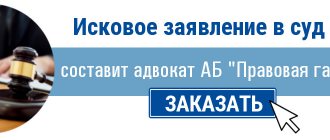The death penalty is one of the types of criminal punishment, an exhaustive list of which is enshrined in Article 44 of the Criminal Code of the Russian Federation.
Currently, the Criminal Code of the Russian Federation provides for the possibility of imposing the death penalty only for crimes related to an attack on human life.
The death penalty has the following characteristics:
- exceptional punishment;
- can be established only for especially serious crimes: premeditated murder under aggravating circumstances (part 2 of article 105 of the Criminal Code of the Russian Federation); encroachment on the life of a state or public figure (Article 277 of the Criminal Code of the Russian Federation); encroachment on the life of a person administering justice or preliminary investigation (Article 295 of the Criminal Code of the Russian Federation); encroachment on the life of a law enforcement officer (Article 317 of the Criminal Code of the Russian Federation) and genocide (Article 357 of the Criminal Code of the Russian Federation).
- the accused is given the right to have the case tried by a jury.
The norms of Chapter 23 of the Criminal Executive Code of the Russian Federation (Articles 184 - 186 of the Penal Code of the Russian Federation) are devoted to the issues of execution of
Who cannot receive the death penalty?
The current Criminal Code of the Russian Federation establishes a ban on imposing the death penalty on any woman , as well as persons who committed crimes under the age of eighteen the age of sixty-five by the time the court pronounces the verdict .
The death penalty is also not imposed on a person extradited to the Russian Federation by a foreign state for criminal prosecution in accordance with an international treaty of the Russian Federation or on the basis of the principle of reciprocity, if, in accordance with the legislation of the foreign state that extradited the person, the death penalty is not provided for the crime committed by this person or non-application of the death penalty is a condition of extradition, or the death penalty cannot be imposed on him for other reasons.
The death penalty is not imposed upon a jury verdict of leniency for preparation for a crime and attempted crime. If the death penalty is imposed, then by way of pardon it can be replaced by life imprisonment or imprisonment for a term of twenty-five years.
The non-application of the death penalty for an unfinished crime is also based on the principles of humanism and justice. At the same time, the legislator proceeds from the position that the death penalty can be imposed only in cases of causing death to other persons.
Judicial practice under Article 59 of the Criminal Code of the Russian Federation
“Review of the practice of the Constitutional Court of the Russian Federation for 2017”
50. By Resolution No. 7-P of March 16, 2021, the Constitutional Court assessed the constitutionality of the provisions of paragraph 2 of part two of Article 30 and paragraph 1 of part three of Article 31 of the Criminal Procedure Code of the Russian Federation, part second article 57 and part two of article of the Criminal Code of the Russian Federation.
Appeal ruling of the Judicial Collegium for Criminal Cases of the Supreme Court of the Russian Federation dated December 5, 2018 N 78-APU18-28
Thus, the sanction of Part 5 of Art. 228.1 of the Criminal Code of the Russian Federation in its legal unity with the provisions of Part 2 of Art. The Criminal Code of the Russian Federation provides for punishment for women in the form of imprisonment for a term of 15 to 20 years. By virtue of Part 4 of Art. According to the Criminal Code of the Russian Federation, for a combination of crimes, the guilty person may be sentenced to imprisonment for a term of up to 25 years.
Cassation ruling of the Judicial Collegium for Criminal Cases of the Supreme Court of the Russian Federation dated June 19, 2019 N 23-UD19-6
on the basis of Part 5 of Art. The Criminal Code of the Russian Federation for the totality of crimes by partial addition of the punishments imposed by the verdict of June 11, 2002 and by the verdict of August 3, 2005, impose seventeen years and two months of imprisonment. Otherwise, these same court decisions are left unchanged, and the cassation appeal of the convicted Khaidarov R.M. - without satisfaction.
Appeal ruling of the Judicial Collegium for Criminal Cases of the Supreme Court of the Russian Federation dated May 29, 2018 N 51-APU18-4
The punishment imposed on all convicted persons complies with the requirements of the law, is fair and proportionate to the crime. Provisions of Part 5 of Art. The Criminal Code of the Russian Federation in relation to the convicted Litvinenko was applied correctly by the court of first instance. The court's decision to collect procedural costs from convicted persons in the amounts specified in the verdict complies with the requirements of the criminal procedure law. The conclusions about the amount of procedural costs to be recovered from the convicted persons are motivated in detail by the court in the verdict and are justified.
Appeal ruling of the Judicial Collegium for Criminal Cases of the Supreme Court of the Russian Federation dated January 29, 2019 N 82-APU18-10
According to paragraph 20 of the resolution of the Plenum of the Supreme Court of the Russian Federation dated June 27, 2013 N “On the application by courts of legislation regulating the grounds and procedure for exemption from criminal liability”, based on the provisions of Part 4 of Art. Of the Criminal Code of the Russian Federation, the issue of applying statutes of limitations to a person who has committed a crime for which punishment is life imprisonment is resolved only by the court and in relation to all subjects, regardless of whether this punishment can be assigned to the person taking into account the rules of Part 2 of Art. , part 2 and 2.1 art. , part 4 art. and part 4 art. Criminal Code of the Russian Federation.
Determination of the Judicial Collegium for Criminal Cases of the Supreme Court of the Russian Federation dated November 8, 2017 N 74-UD17-9
In accordance with Part 2 of Art. and part 2 of Art. The Criminal Code of the Russian Federation does not impose life imprisonment and the death penalty on women. In this connection, the most severe type of punishment for committing a crime under Part 2 of Art. 105 of the Criminal Code of the Russian Federation, for women it is 20 years of imprisonment.
Appeal ruling of the Judicial Collegium for Criminal Cases of the Supreme Court of the Russian Federation dated April 18, 2018 N 59-APU18-2
Since in accordance with Part 2 of Art. and part 2 of Art. The Criminal Code of the Russian Federation does not impose life imprisonment and the death penalty on men who have reached the age of sixty-five by the time the court pronounces the verdict, and also taking into account the absence of aggravating circumstances in the case, the court, when imposing punishment on Tatomir Ya.I. applied the provisions of Part 1 of Art. Criminal Code of the Russian Federation.
Appeal ruling of the Judicial Collegium for Criminal Cases of the Supreme Court of the Russian Federation dated February 22, 2018 N 4-APU18-3
According to paragraph 20 of the resolution of the Plenum of the Supreme Court of the Russian Federation dated June 27, 2013 N “On the application by courts of legislation regulating the grounds and procedure for exemption from criminal liability”, based on the provisions of Part 4 of Art. Of the Criminal Code of the Russian Federation, the issue of applying statutes of limitations to a person who has committed a crime for which punishment is life imprisonment is resolved only by the court and in relation to all subjects, regardless of whether this punishment can be assigned to the person taking into account the rules of Part 2 of Art. , part 2 and 2.1 art. , part 4 art. and part 4 art. Criminal Code of the Russian Federation.
Resolution of the Presidium of the Supreme Court of the Russian Federation dated February 15, 2017 N 6P17
In accordance with Part 2 of Art. , part 2 art. The Criminal Code of the Russian Federation does not impose life imprisonment or the death penalty on women. Therefore, taking into account the requirements of Art. Criminal Code of the Russian Federation, Sklepovich under paragraphs “g”, “k”, part 2 of Art. 105 of the Criminal Code of the Russian Federation, a sentence exceeding 13 years and 4 months of imprisonment could not be imposed.
Cassation ruling of the Judicial Collegium for Criminal Cases of the Supreme Court of the Russian Federation dated May 23, 2017 N 45-O17-2
Based on the provisions of Part 4 of Art. According to the Criminal Code of the Russian Federation, the issue of applying the statute of limitations to a person who has committed a crime for which punishment is life imprisonment is resolved only by the court, regardless of whether this punishment can be assigned to the person taking into account the rules of Part 2 of Art. , part 2 art. , part 4 art. and part 4 art. Criminal Code of the Russian Federation. Exemption of persons from criminal liability for such crimes is a right, not an obligation of the court.
Resolution of the Constitutional Court of the Russian Federation dated March 16, 2017 N 7-P
ARTICLES OF THE CRIMINAL CODE OF THE RUSSIAN FEDERATION IN CONNECTION WITH THE COMPLAINT OF CITIZEN V.D. LABUSOV Constitutional Court of the Russian Federation composed of Chairman V.D. Zorkin, judges K.V. Aranovsky, A.I. Boytsova, N.S. Bondar, G.A. Gadzhieva, Yu.M. Danilova, L.M. Zharkova, S.M. Kazantseva, S.D. Knyazeva, A.N. Kokotova, L.O. Krasavchikova, S.P. Mavrina, N.V. Melnikova, Yu.D. Rudkina, O.S. Khokhryakova, V.G. Yaroslavtseva,
Execution of the death penalty
The death penalty is carried out non-publicly by shooting. The execution of the death penalty in relation to several convicts is carried out separately in relation to each and in the absence of the others.
During the execution of the death penalty, there is a prosecutor, a representative of the institution in which the death penalty is carried out, and a doctor.
The death of the convicted person is confirmed by a doctor. A protocol on the execution of the court sentence is drawn up and signed by the persons present during the execution of the sentence.
Puff
The last death sentence in Russia regarding Golovkin was carried out in 1996, and the court's decision was heard back in 1994. Why was the sentence not carried out earlier?
Boris Yeltsin ignored the petitions for a long time, but on the eve of the signing of Protocol No. 6, all complaints (more than 100) were urgently considered. More than half were rejected, and Golovkin’s petition was also included here. For the rest, the death penalty was replaced with life or 25-year imprisonment.
Moratorium on the use of the death penalty in Russia
The death penalty is not applied in Russia, but not on the basis of Decree of the President of the Russian Federation of May 16, 1996 N 724 “On the gradual reduction of the use of the death penalty in connection with Russia’s entry into the Council of Europe,” as some citizens believe. This Decree did not establish a ban on the use of the death penalty and could not be established, since the President did not have such powers. Therefore, the only legal basis for the non-application of the death penalty is Resolution of the Constitutional Court of the Russian Federation of February 2, 1999 N 3-P, from the moment of entry into force of which until the entry into force of the corresponding federal law, providing throughout the Russian Federation for everyone accused of a crime, commission of which the death penalty is established by federal law as an exceptional measure of punishment, the right to have his case considered by a court with the participation of a jury, the death penalty cannot be imposed regardless of whether the case is considered by a court with the participation of a jury, a panel consisting of three professional judges or a court consisting of a judge and two people's assessors.
But this ban on the use of the death penalty is temporary. Formally, this punishment has been retained in the Russian Federation.
On the issue of the use of the death penalty, the legal position of the Constitutional Court of the Russian Federation has currently been expressed.
In accordance with the Determination of the Constitutional Court of the Russian Federation dated November 19, 2009 N 1344-O-R, it is established that the provisions of paragraph 5 of the operative part of the Resolution of the Constitutional Court of the Russian Federation dated February 2, 1999 N 3-P in the system of current legal regulation, on on the basis of which, as a result of a long moratorium on the use of the death penalty, stable guarantees of the human right not to be subjected to the death penalty were formed and a constitutional and legal regime was formed, within the framework of which - taking into account the international legal trend and the obligations undertaken by the Russian Federation - an irreversible process is taking place , aimed at the abolition of the death penalty as an exceptional punishment of a temporary nature (“pending its abolition”) and allowed only during a certain transition period, i.e. to achieve the goal enshrined in Art. 20 (part 2) of the Constitution of the Russian Federation, mean that the implementation of this Resolution in the part relating to the introduction of trial by jury throughout the Russian Federation does not open up the possibility of applying the death penalty, including on a conviction passed on the basis of a verdict jurors. Thus, the death penalty in Russia cannot be used in the future.
“One percent can be released into the wild”
Life prisoners have the right to apply for parole after serving 25 years of their sentence. In the Mordovian colonies there are people who have been there longer - 26, 28, 30 years. To date, the court has not released anyone. When answering the question whether it is possible to release life-sentence prisoners, prison authorities and psychologists come to an almost unanimous answer.
In theory, prisoners have the right to have their sentences reviewed and released. But I believe that only a few will be able to adapt in the wild due to the high risk of relapse. And only if the convicted person has not lost socially useful connections, housing, and relatives who will help him get used to the modern world.
Tatyana AlyakshinaHead of psychological service of the Federal Penitentiary Service of Russia for the Republic of Mordovia
The head of IK-6, Colonel of the Internal Service Sergei Simakov, believes that prisoners who have served a quarter of a century will not be able to adapt to freedom - there they will have to earn their living, and many before the trial were engaged exclusively in criminal activities. “They [the convicts] don’t know any other life other than what it was like before the colony, but here they are used to living with everything ready, when they are brought breakfast, lunch and dinner according to a schedule,” explains Simakov.
Open letter from Alexander Zubarev, sentenced to death
An open letter from Alexander Zubarev, sentenced to death. Photo: Maria Frolova
Only a small percentage of prisoners sincerely repent of what they have done - they even thank law enforcement officers for stopping them from further crimes and isolating them from society in time. But colony staff are accustomed to treating such words with distrust: prisoners have a high level of deceit - as a way of adapting to circumstances. And high hidden aggressiveness, invisible to ordinary people.
There is a very high probability that each of those who are serving a life sentence, upon release, will sooner or later commit a crime again. Many prisoners themselves say that once a murderer crosses some kind of internal barrier, he will never stop again. For such people, repeated murder is already something familiar. And behind bars they are held back only by circumstances - and the lack of alcohol.
Each of those sentenced to life has a very high level of deceit, which is simply suppressed in places of imprisonment. It is suppressed by them themselves - you will not see it. Deceit is the best way to adapt to conditions. And every convict has the highest aggressiveness hidden inside.
Tatyana AlyakshinaHead of psychological service of the Federal Penitentiary Service of Russia for the Republic of Mordovia
According to the psychologist, in the wild, when there are no restrictions, most, if not all, convicts will relapse again. Those who are truly expected to be released will be able to adapt. Unfortunately, there are only a few of these.








